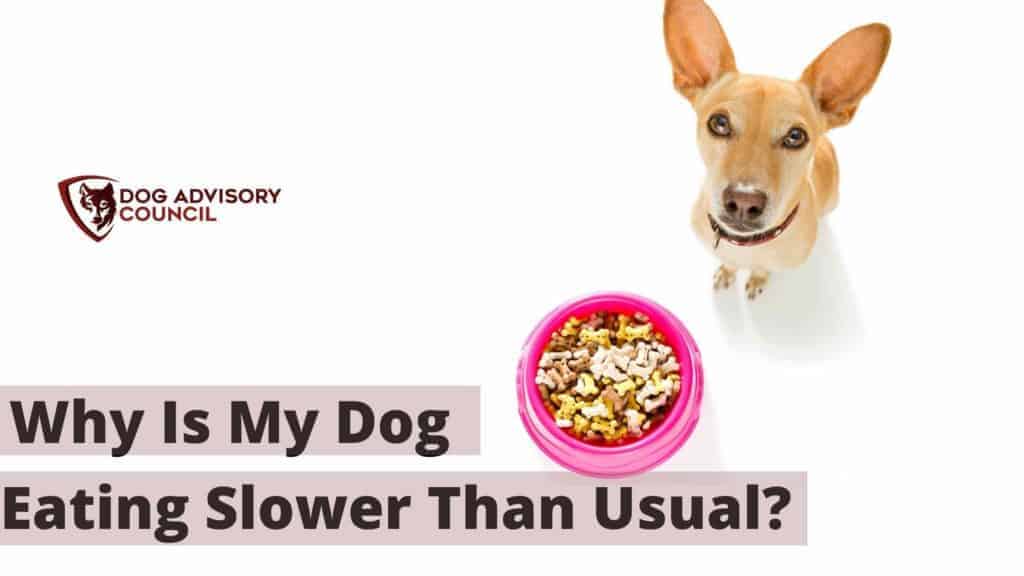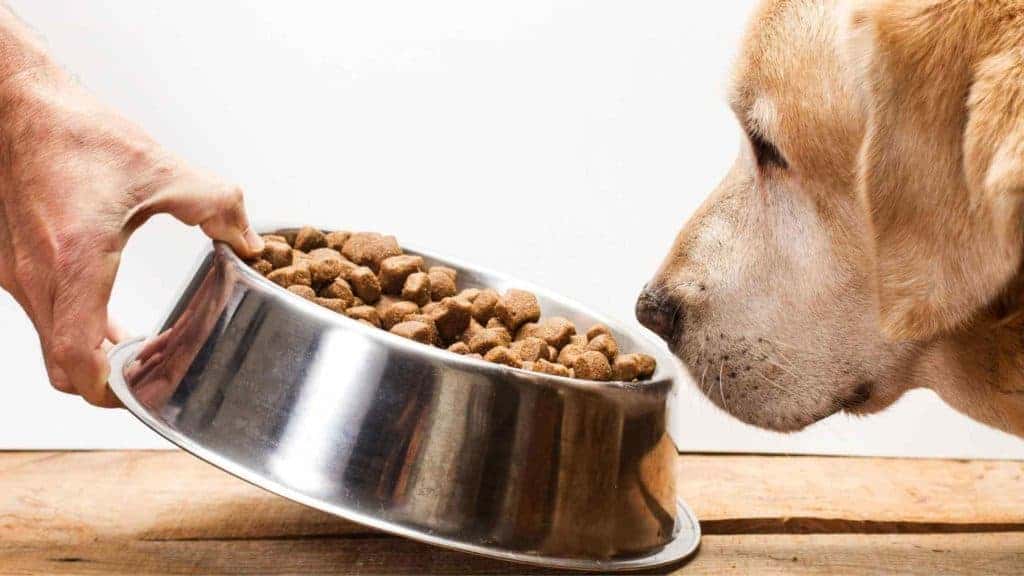
Notice that your dog is especially particular about eating instead of scarfing down every crumb, as usual?
Here are some of the main reasons that may be causing him to gear down his chowtime.
If you notice your dog is eating slower than usual, it might be a response to a big or series of small changes, which cause stress.
Stress will cause them to eat slower as they adapt. Dental issues can also cause slow eating, vaccinations or medications, an upset stomach, poor quality food, overfeeding/treating, and age.
Why is my dog taking forever to eat?
If the change in your dog’s eating speed feels especially recent, you’ll want to take a moment to learn about the various triggers that could be causing the problem.
Here are some of the most recent ones to know about.
- Stress or unease
- Dental problems
- Vaccinations or medications
- Upset stomach/illness
- Food fatigue
- Lack of appetite
Unlimited claims, No credit checks, No upper age limit & Multiple pet discounts
Compare the best rates on pet insurance
Stress or unease
Emotional upset is commonly the leading cause for concern for dog owners regarding a change in their dog’s diet.
In that, we mean that it tends to be the most likely cause of a sudden change in appetite for seemingly no reason.
The stress of upset could be due to a big change or a small change.
Examples of big changes include going on a vacation with your dog and being in a new environment where your dog is uncertain of how things go. It could also be something like being around new people or new pets.
Minor changes also can cause a problem, especially since they seem insignificant to us all-knowing humans.
A sudden change in dog food (rather than a gradual transition), a new bowl that is a different material or different shape. Maybe even a new eating environment (changing the location of the bowls in your home, for example).
Dental problems
When your dog has gum or dental issues, it may mean that eating kibble is very hard for them. It makes them eat gingerly and slowly because they are trying to manage the pain.
You might notice other symptoms of this, too. For example, a tendency to drink more than usual, carefully chewing food, and taking common breaks to pant.
These are all signs that your dog has some tooth or gum problems, or maybe even just a sore jaw from chewing on a toy!
Vaccinations or medications
If he’s just had his vaccinations or perhaps is on some medication to recover from an illness or infection, he may be dealing with an upset stomach or just “not feeling well”.
This would be like when humans feel “under the weather” while recovering from vaccinations or antibiotics. Once they go off of these medications or recover from vaccinations, this should go away.
Upset stomach/illness
Another cause is that your dog may be dealing with an upset stomach that makes him not want to put anything else in there. Or, he is sick and feeling very unwell.
A dog that doesn’t feel at its best isn’t going to eat properly. He may eat slower, take breaks, or even seem disinterested in his food.
Food fatigue
If you’ve been feeding the same kind of food to your dog for years and years, he may simply not like it anymore. He may want to have something else to “shake it up” and make it seem more attractive to his palette.
It seems silly, perhaps, but it makes perfect sense when you think about it from a human point of view. You’d hate eating the same thing for years on end, too!
This is especially likely if, for example, you put your dog’s food down and he gives you a dirty look before half-heartedly picking at it and eating it “under protest.” You have to admit, it’s pretty funny.
Lack of appetite
If you are guilty of giving your dog some human food regularly throughout the day, or you enjoy giving them lots of treats, it’s possible that your dog is just full and isn’t hungry enough to eat properly.
So, he takes his time and picks at his food instead of devouring it. In this case, the best way to notice this is by thinking about what else he’s had to eat. The smaller your dog is, the smaller his appetite will be, after all.
Do older dogs eat slower?
Generally, older dogs do eat slower, yes. As they age, their appetite will shift and adjust, which means that they may not need nearly as much food as they are getting.
It could be smaller portion sizes, changing the scheduling of your feeding times, or even changing the type of food.
As teeth issues become more prominent in senior dogs, adding soft food to their diet could be helpful.

When do puppies slow down eating?
Puppies are amongst the worst for scarfing down their food. They’re also, ironically, amongst the worst for getting distracted while eating their food and not finishing it.
Puppies are so young and malleable that their eating habits tend to be all over the place.
If you’re dealing with a pup that is eating you out of house and home, you’ll be relieved to know that puppies will eat less and eat slower once they get to be full-grown. This is usually somewhere between 1-2 years old.
When should I worry about my dog’s eating?
If you’re still feeling kind of concerned about your dog’s eating, you’ll want to take a look at getting him in to see a vet.
Even if everything is fine, having a professional take a look can offer a lot of comfort because you know that your dog is okay and just going through a rough patch for eating.
That being said, sometimes a change in appetite can signify a bit of a bigger problem.
You’ll want to keep an eye out for other symptoms, such as pain indicators (panting, whining, restlessness), lack of interest in toys or playing outside/going for a walk, and other signs that there is something more serious going on.
How to get my dog to eat faster?
If you’re tired of it taking 20 minutes for your dog to eat a small bowl of kibble, there are a few things that you can try to help speed up that time a little bit.
Double-check your dog’s health
In this case, it would be their general health, but also their oral health. A dog with a sore mouth won’t eat as much or as fast as a dog with healthy teeth and good oral hygiene.
Get portion size right
Check with your vet on portion sizing. If you are giving your dog too much food, it will take them longer to eat.
You can also try spacing out their meal with the right portion size. That is, feed them half at, say 4:00, and then the second half at 5:00. It’ll still give them their nutrition but will speed up the eating process.
Minimize distractions
If your dog (especially your puppy) is distracted, it may struggle to focus on eating. Minimize distractions such as other animals, kids picking at them, and general chaos around them.
This will also help keep their stress levels down since your dog won’t need to choose between eating and paying attention if they miss something.
Eat with them
Dogs are pack animals by nature, so they are very social. Some dogs don’t like to eat alone.
If you have no other pets, you can consider putting their food down at the same time that you sit down to eat. This will make them feel like they have a buddy and can eat away as they want to.
How long should a dog take to eat?
This is a great question. The honest answer is that it does depend on the dog. There is no average speed for your dog to eat, and you won’t want to put a stopwatch on it.
If you’re concerned, just get a feel for how long it takes them to eat, and use that as your guide.
Some dogs are free feeders. They’ll pick at a few kibbles here and a few there. It isn’t cause for concern.
Just keep an eye on the portion sizes and make sure you always top their bowl up at a specific time of day so that you know how long it takes them within 24 hours to eat their designated portion.
A reminder on eating pace
Even if you’re frustrated that your dog takes a long time to eat, you won’t want to push them or rush them.
A dog’s pace is going to be what it’s intended to be, and getting upset at your dog is only going to make matters worse.
If the rate bothers you because you are waiting to do something after he eats (i.e., take him out before you leave for work), adjust the eating time earlier.
Finally
A sudden change in your dog’s feeding pace could be due to health issues, stress, lack of appetite, or even aging.
Getting to the root of the problem will help make sure that they are healthy and happy.
A dog who suddenly slows its eating pace could be dealing with an illness, dislike of food, or any number of physical or emotional concerns.
Proper diagnosis of the cause is going to be essential for keeping everyone safe and happy.
Know someone who is dealing with this problem right now? Share this with them!
Unlimited claims, No credit checks, No upper age limit & Multiple pet discounts
